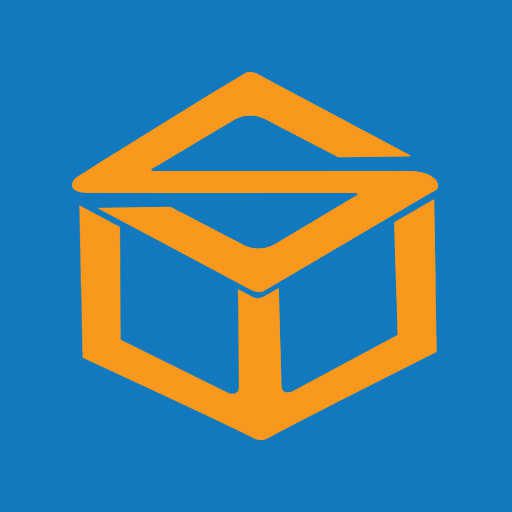Description

Inoday eCommerce Solution

Lead Commerce
Comprehensive Overview: Inoday eCommerce Solution vs Lead Commerce
A Comprehensive Overview of Inoday eCommerce Solution and Lead Commerce
a) Primary Functions and Target Markets
Inoday eCommerce Solution:
Primary Functions:
- Inoday provides a cloud-based eCommerce solution integrated with ERP systems like NetSuite. It offers features such as inventory management, order processing, customer relationship management (CRM), and analytics.
- The platform is highly customizable, enabling businesses to tailor their online storefronts to align with specific organizational needs.
- Inoday also provides support for multi-channel sales, allowing businesses to manage sales across various platforms from a single interface.
Target Markets:
- Small to medium-sized enterprises (SMEs) looking for comprehensive integration between their eCommerce operations and ERP systems.
- Industries such as retail, wholesale distribution, and manufacturing that require robust inventory and order management capabilities.
Lead Commerce:
Primary Functions:
- Lead Commerce is a cloud-based inventory and order management solution designed for eCommerce businesses. It includes features like inventory tracking, order fulfillment, purchasing, and sales analytics.
- It aims to streamline operations by providing tools for multiple channel integration, warehouse management, and detailed reporting.
Target Markets:
- Small to medium-sized eCommerce businesses that require efficient inventory and order management solutions.
- It caters to industries like eCommerce retail, wholesale, and distribution, with a focus on simplifying complex logistics.
b) Market Share and User Base
Inoday eCommerce Solution:
- Being a solution provider that integrates with NetSuite, Inoday has a niche user base primarily composed of businesses already using or planning to deploy NetSuite ERP.
- Its market share tends to reflect NetSuite's penetration within the SME sector, which is substantial given NetSuite’s reputation and capabilities in the cloud ERP market.
- The user base typically includes companies that have complex inventory and order management needs that necessitate a powerful ERP-eCommerce integration.
Lead Commerce:
- Lead Commerce positions itself as an affordable and intuitive solution for growing eCommerce businesses. Its market share is more pronounced in niche segments that prioritize straightforward and cost-effective inventory management.
- It has a varied user base, mainly composed of start-ups and SMEs that are scaling up operations and need robust inventory and order management without hefty ERP investment.
c) Key Differentiating Factors
Inoday eCommerce Solution:
- ERP Integration: A key differentiator is its seamless integration with NetSuite ERP, which offers advanced functionalities and streamlined business processes.
- Customization: Offers extensive customization options that allow businesses to modify both front-end and back-end operations.
- Scalability: Highly scalable due to the robust infrastructure underpinning NetSuite, making it suitable for companies planning to expand.
Lead Commerce:
- Simplicity and Usability: Known for its user-friendly interface that minimizes the learning curve, making it accessible to businesses without in-house IT expertise.
- Cost-Effectiveness: Typically more budget-friendly compared to fully integrated ERP solutions, providing essential eCommerce functionalities without extensive overhead.
- Faster Deployment: Due to its streamlined feature set, it can often be deployed more quickly than more comprehensive ERP-integrated solutions.
In summary, while both Inoday and Lead Commerce offer solutions aimed at enhancing eCommerce businesses, they cater to distinct needs and business sizes. Inoday is ideal for companies seeking to deeply integrate their eCommerce operations with ERP systems, offering advanced features and scalability. Conversely, Lead Commerce is well-suited for companies prioritizing simplicity, ease of use, and cost-effectiveness with an emphasis on inventory and order management.
Contact Info

Year founded :
Not Available
Not Available
Not Available
Not Available
Not Available

Year founded :
2010
+1 858-480-9963
Not Available
United States
http://www.linkedin.com/company/lead-commerce
Feature Similarity Breakdown: Inoday eCommerce Solution, Lead Commerce
Inoday eCommerce Solution and Lead Commerce are both platforms designed to assist businesses with managing and optimizing their eCommerce operations. Here is a breakdown of their feature similarities and differences:
a) Core Features in Common
-
Order Management:
- Both platforms provide comprehensive order management capabilities, allowing businesses to track, process, and fulfill customer orders efficiently.
-
Inventory Management:
- They offer tools to manage inventory levels, update stock in real-time, and prevent stockouts or overstock situations.
-
Multi-Channel Selling:
- These solutions support integration with multiple sales channels, enabling businesses to sell across different platforms such as marketplaces, POS, and online stores.
-
Customer Relationship Management (CRM):
- Basic CRM functionalities are available in both solutions to help manage customer information and interactions.
-
Reporting and Analytics:
- Both platforms provide reporting and analytics features, offering insights into sales performance, customer behavior, and inventory turnover.
-
Integration Capabilities:
- The solutions are designed to integrate with other systems such as accounting software, shipping providers, and CRM tools.
b) User Interface Comparison
-
Inoday eCommerce Solution:
- Typically, Inoday emphasizes providing a user-friendly and robust interface that caters to users who may operate complex eCommerce setups. The design often focuses on functionality and integration within larger business processes (such as NetSuite ERP integration if applicable).
-
Lead Commerce:
- Known for its clean and modern interface, Lead Commerce often aims to offer intuitive navigation and ease of use for small to medium-sized businesses. The interface is generally streamlined, focusing on creating a smooth user experience with quick access to key features.
c) Unique Features
-
Inoday eCommerce Solution:
- ERP Integration: If built on or around NetSuite, Inoday offers seamless integration with NetSuite ERP, providing a unified platform for managing every aspect of the business from a single interface.
- Customization Capabilities: Extensive customization options tailored to specific business requirements and workflows, especially for those already using Inoday’s broader consulting and IT solutions.
-
Lead Commerce:
- Price Management Tools: Advanced pricing tools to handle discount codes, complex pricing strategies, and customer-specific pricing.
- Batch Processing: Lead Commerce often offers strong batch processing capabilities for bulk updates and operations, which is key for businesses dealing with high volumes of transactions.
Each platform serves different business needs, and the choice between them would depend on specific organizational requirements, existing business processes, and which unique features provide the most value.
Features

Analytics and Reporting
Product Management
Customer Experience
Marketing Tools
User-Friendly Interface

Customer Management
Reporting and Analytics
Inventory Management
Order Processing
Integration and Customization
Best Fit Use Cases: Inoday eCommerce Solution, Lead Commerce
Inoday eCommerce Solution and Lead Commerce both offer distinct advantages suited to various business needs and scenarios. Here's a breakdown of their best-fit use cases:
Inoday eCommerce Solution
a) Ideal Businesses or Projects:
- Small to Medium-sized Enterprises (SMEs): Inoday's solutions are well-integrated with scalable platforms like NetSuite, making them a great fit for growing companies that need cloud-based ERP integration.
- Retail & Wholesale: Businesses that require an efficient order management system, inventory control, and customer service capability can benefit significantly. These industries often face challenges in managing large inventories and customer expectations simultaneously, which Inoday addresses.
- Companies Needing Custom Solutions: Businesses with specific needs and workflows can leverage Inoday's customization potential to tailor the solution to their operations, particularly if they are already using NetSuite.
d) Industry Verticals or Company Sizes:
- Retail, Distribution, and Manufacturing: Inoday provides functionalities that align with typical challenges in these sectors, such as supply chain management, distribution logistics, and production scheduling.
- Flexible for Startups to Mid-sized Enterprises: Inoday can cater to smaller companies with potential for growth, thanks to its scalable infrastructure.
Lead Commerce
b) Preferred Scenarios:
- Direct-to-Consumer Brands: Lead Commerce is well-suited for businesses that focus heavily on a direct relationship with consumers, often dealing with complex order fulfillment needs.
- Complex Inventory and Operations: Companies requiring sophisticated inventory management, multi-channel fulfillment, and sales integrations can benefit from Lead Commerce’s ability to streamline operations.
- eCommerce Companies with Large Product Lines: Businesses selling a wide array of products online will find the robust product catalog capabilities of Lead Commerce advantageous.
d) Industry Verticals or Company Sizes:
- eCommerce and Omnichannel Retail: Industries that deal directly with customers via multiple channels can leverage Lead Commerce's capabilities to centralize data and fulfill orders efficiently.
- Small to Large Enterprises: While scalable, Lead Commerce is particularly beneficial for medium to larger enterprises that have expansive product lines and need advanced inventory capabilities.
Summary
-
Inoday eCommerce Solution is particularly beneficial for small to mid-sized businesses that require customized eCommerce solutions integrated with NetSuite’s ERP capabilities. It is best used in industries like retail, distribution, and manufacturing that require strong warehouse and inventory management solutions.
-
Lead Commerce is ideal for businesses that need advanced inventory and supply chain management features, especially those in direct-to-consumer and omnichannel retail. It can support operations for companies ranging from SMEs to larger enterprises with more complex needs.
Both solutions cater to different aspects of business management, with Inoday focusing more on integration with ERP systems and Lead Commerce providing robust inventory and direct sales support. Companies should assess their specific operational needs, integration requirements, and growth trajectories when choosing between these solutions.
Pricing

Pricing Not Available

Pricing Not Available
Metrics History
Metrics History
Comparing teamSize across companies
Conclusion & Final Verdict: Inoday eCommerce Solution vs Lead Commerce
To provide a comprehensive conclusion and final verdict between Inoday eCommerce Solution and Lead Commerce, it's important to consider various factors such as features, pricing, scalability, customer support, integration capabilities, and user feedback. Here is a structured analysis:
a) Best Overall Value
Best Overall Value: The best overall value depends considerably on the specific needs of the business. However, generally speaking, Inoday eCommerce Solution might offer better overall value for small to mid-sized businesses looking for a comprehensive, ready-to-use solution with excellent support and integration ease. On the other hand, Lead Commerce might provide better value for larger enterprises requiring highly customizable platforms with extensive reporting and inventory management capabilities.
b) Pros and Cons of Choosing Each Product
Inoday eCommerce Solution:
-
Pros:
- Ease of Use: User-friendly interface that can be easily navigated by businesses new to eCommerce platforms.
- Support and Onboarding: Effective customer support with personalized onboarding services.
- Integration: Good integration capabilities with major platforms like CRM, accounting tools, and other business applications.
-
Cons:
- Scalability: May face challenges in scaling for very large enterprises or those with highly complex needs.
- Customization: Limited customization options compared to more robust systems.
Lead Commerce:
-
Pros:
- Customization: Offers highly customizable features which are beneficial for businesses with unique or specific operational needs.
- Inventory Management: Strong focus on inventory and order management with efficient reporting tools.
- Scalability: Suitable for large businesses or those expecting rapid growth and complexity in operations.
-
Cons:
- Learning Curve: Might require more training and a steeper learning curve for new users.
- Cost: Generally, higher pricing structure which might not be suitable for small businesses with budget constraints.
c) Specific Recommendations
Recommendations for Users:
-
For Startups and Small Businesses:
- Choose Inoday eCommerce Solution if you are looking for an affordable, easy-to-use platform with essential features for launching and managing an online store without needing extensive customization.
-
For Mid-Sized to Large Enterprises:
- Opt for Lead Commerce if your business requires advanced inventory management and reporting capabilities, along with the need for customization to fit specific business processes.
-
Consider Future Growth:
- Evaluate both solutions based on your anticipated growth and scalability needs. If you expect rapid growth and need your system to accommodate increased complexity and higher transaction volumes, Lead Commerce might be the preferred choice.
-
Test Platforms:
- Utilize free trials, demos, or pilot programs offered by both platforms to get hands-on experience and assess which aligns better with your operational style and business requirements.
-
Assess Total Cost of Ownership:
- Consider the long-term costs associated with each platform, including setup fees, training costs, subscription pricing, and any additional fees for integrations or extended support services.
By taking into account the specific requirements of your business and thoroughly evaluating each platform, you can make an informed decision that aligns with your operational needs and budget constraints.
Add to compare
Add similar companies




